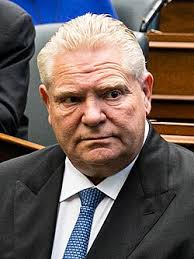
Introduction
Doug Ford, the Premier of Ontario, remains a prominent figure in Canadian politics, known for his controversial policies and direct approach to governance. As a member of the Progressive Conservative Party, Ford’s leadership plays a critical role in shaping provincial policies and addressing pressing issues such as healthcare, housing, and the economy. Understanding his political journey and influence is essential for Ontarians and Canadians alike, especially as the province navigates complex challenges.
The Rise of Doug Ford
Doug Ford was elected the 26th Premier of Ontario on June 7, 2018, after leading the Progressive Conservative Party to a decisive victory in the provincial elections. His rise to power came after a tumultuous period for the party, marked by scandals and leadership changes. Ford, who previously served as a Toronto City Councillor, capitalized on public dissatisfaction with the previous Liberal government, focusing his campaign on fiscal responsibility, cutting taxes, and reducing government waste.
Key Policies and Initiatives
Since taking office, Ford has implemented a range of policies that have generated significant debate. His government has prioritized economic recovery, especially in the wake of the COVID-19 pandemic, proposing initiatives to stimulate job growth and support businesses. Additionally, Ford’s administration has approached controversial reforms in healthcare, education, and environmental policies, often facing criticism from opposition parties and advocacy groups.
One of the most notable policies was the introduction of the “Ontario COVID-19 Action Plan,” which provided funding to support healthcare systems and bolster public health infrastructure. However, Ford’s attempts to cut funding to public health units and the controversial decision to scrap the cap-and-trade system for greenhouse gas emissions have sparked considerable backlash among environmental advocates.
Recent Developments and Challenges
As Ontario heads towards the next provincial election in 2026, Ford faces a growing array of challenges, including rising inflation, housing shortages, and backlash against the government’s handling of the pandemic. Recent surveys indicate fluctuating public approval ratings, and a growing number of progressive groups are mobilizing to challenge his tenure.
Moreover, issues surrounding healthcare access and affordability remain of utmost concern among voters, pressuring the government to provide transparent solutions. Addressing these challenges will be crucial as Ford seeks re-election and aims to solidify his legacy.
Conclusion
Doug Ford’s political journey is marked by both achievements and controversies that continue to shape Ontario’s landscape. As the province prepares for future electoral decisions, the implications of his policies on the everyday lives of Ontarians will be critical to watch. Whether Ford’s approach will resonate with voters in upcoming elections remains to be seen, but his impact on Ontario’s politics is undeniably significant now and into the future.



